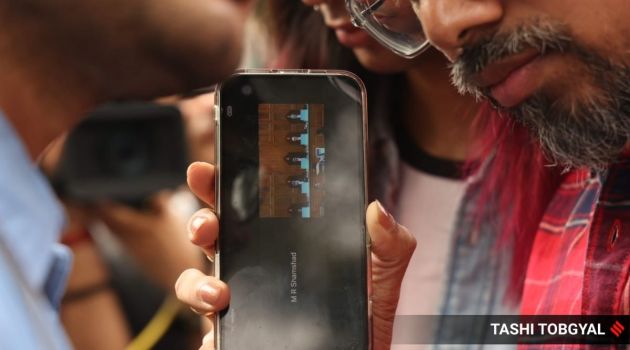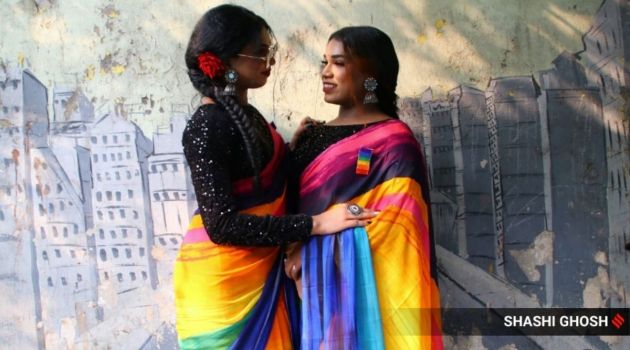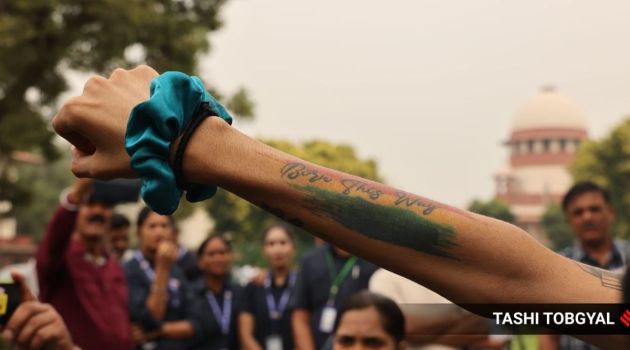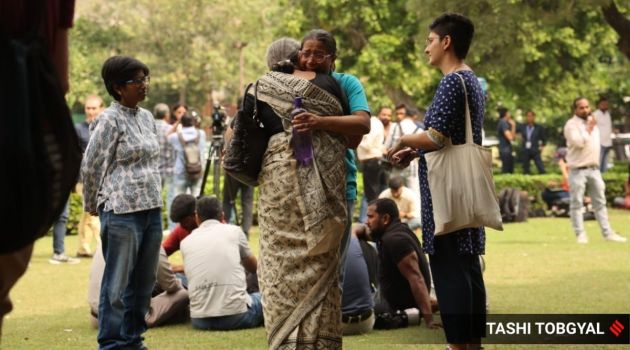SC unanimously says no to same-sex marriage
In its much-awaited judgment, the apex court said that the right to marriage is not a fundamental one. It added that it cannot strike down the provisions of the Special Marriage Act or read words differently while maintaining that homosexuality is not an urban or elite concept.
October 17, 2023 14:33 IST
 1 / 9
1 / 9A five-judge Constitution bench of the Supreme Court on Tuesday refused to grant legal recognition to same-sex marriages.
 2 / 9
2 / 9As per the Human Rights Campaign, a LGBTQ advocacy group based out of the US says only 32 countries worldwide recognise same sex marriage. These include the United States, Canada, Australia, Argentina, South Africa and Taiwan. In 2019, Taiwan became the first Asian country to recognise same sex marriage. (Express Photo)
 3 / 9
3 / 9It added that it cannot strike down the provisions of the Special Marriage Act or read words differently while maintaining that homosexuality is not an urban or elite concept.
 4 / 9
4 / 9The focus of the petitions was the gender-neutral interpretation of the Special Marriage Act, a secular legislation designed to facilitate inter-caste and inter-faith marriages.
 5 / 9
5 / 9A five-judge bench led by Chief Justice of India D Y Chandrachud had heard their pleas over a 10-day period, during which the court proceedings were live-streamed in public interest.
 6 / 9
6 / 9In his judgment, CJI Chandrachud directed the Centre to ensure the queer community is not discriminated against, ensure there is no discrimination in access to goods and services, sensitise the public about queer rights, create a hotline for the queer community, create safe houses or Garima grih for queer couples, ensure inter-sex children are not forced to undergo operations and ensure that no person shall be forced to undergo any hormonal therapy.
 7 / 9
7 / 9While the petitioners have argued that lesbian, gay, bisexual, transgender, queer, questioning, intersex, pansexual, two-spirit, asexual and ally persons (LGBTQIA+) deserve the legal privileges bestowed by marriage as a part of their constitutional rights, the Centre and religious leaders opposed the same on a series of fronts
 8 / 9
8 / 9The case is seen as a milestone event for LGBTQIA+ rights in India, following the historic 2018 judgment by the Supreme Court that decriminalised homosexuality. The hearing of pleas, filed by 21 petitioners, lasted for 10 days in April-May 2023, and the verdict was reserved on May 11.
 9 / 9
9 / 9Considering the complex and intertwined nature of marriages and religion, the bench had said that it would not go into personal laws governing marriages and said the very notion of a man and a woman, as referred to in the Special Marriage Act, is not “an absolute based on genitals”.











